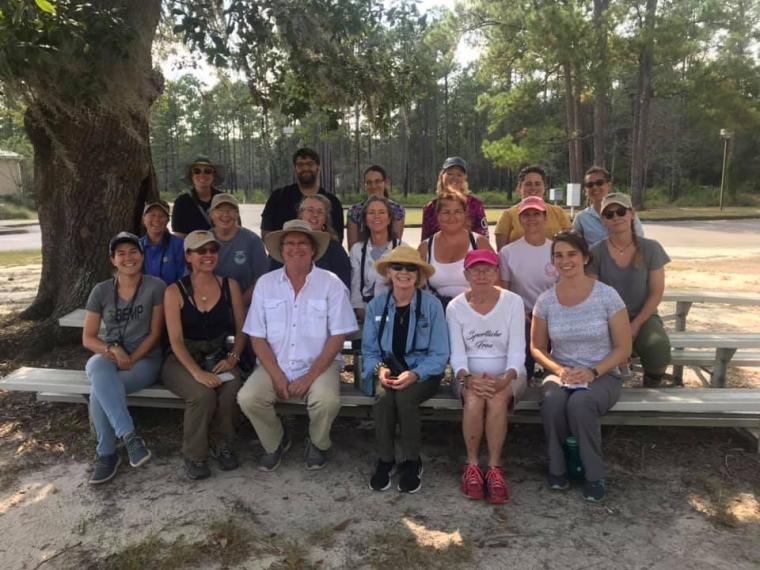
On October 4-5, 2019, the USA-NPN's National Coordinating Office (NCO) hosted the first Clinic designed specifically for Local Phenology Leaders (LPLs) working on long-term Local Phenology Programs (LPP) using Nature's Notebook. The Clinic was inspired by the gathering for the 10-year anniversary of the USA-NPN in October 2018, where many Leaders said they would welcome the opportunity to get together again in person and share ideas.
Long-term Nature's Notebook phenology monitoring programs are designed to meet the needs of local researchers and land managers who have phenology-related questions to answer or educational outcomes to achieve. They also as create pathways for volunteer observers to participate in the Nature's Notebook Citizen Science program. Many LPLs have collaborated in their communities with local organizations to develop a plan for continuous engagement with science and the natural world.
The Clinic was designed to bring LPLs together, regardless of how far along they are in the implementation of the Local Phenology Program. Clinic participants gained skills for implementing Nature's Notebook Programs and were inspired by others doing the same work in the field. The Clinic was relevant to any researcher, land manager, or educator interested in recruiting volunteers to become observers for Nature's Notebook at their chosen location.
The Clinic was held at the Grand Bay National Estuarine Research Reserve (NERR) in Moss Point, Mississippi, October 4-5, 2019. It was co-sponsored by the USA-NPN NCO, the NERR (whose staff graciously offered to host us), the Mississippi Sandhill Crane National Wildlife Refuge, and the members of Gulf Coast Phenology Trail.
The Clinic included talks delivered by NCO staff, Gulf Coast Phenology Trail volunteers, a session on using Nature's Notebook data, program evaluation, and a group-think sessions with deliverables. We took a field trip via boat to learn about the local ecosystem and visit both the NERR and NWR to learn about their phenology monitoring efforts.